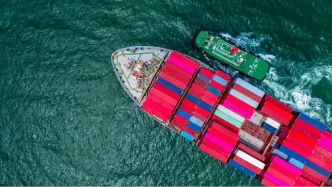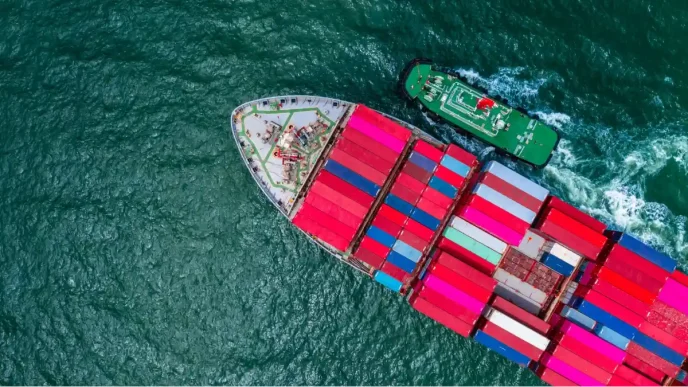By Rohan Lim, South East Asia Correspondent
Singapore’s Prime Minister Lawrence Wong has delivered an optimistic yet grounded New Year message, emphasising the nation’s collective strength in navigating global uncertainties. In his first address as prime minister on 31 December 2024, Wong highlighted robust economic growth, rising incomes, and a commitment to social inclusivity, positioning Singapore as a model of stability amid worldwide turbulence. As the country approaches its 60th anniversary of independence, this message underscores potential reforms that could reshape its social compact, though experts caution that their full impact remains to be seen.
The speech comes at a pivotal moment, with Singapore’s economy expanding by 4 per cent in 2024—surpassing initial forecasts—and median incomes growing by 2.2 per cent annually above inflation over the past decade. Unlike many developed nations grappling with unemployment and wage stagnation, Singapore has maintained a trajectory of real wage increases, fostering a sense of progress. Wong attributed this success to the “Team Singapore” ethos, a concept of national unity that has helped the city-state weather crises from pandemics to geopolitical shifts. However, as global challenges persist, questions arise about the sustainability of this model, particularly in an era of rising costs and international tensions.
Economic Achievements and the Path Forward
Singapore’s economic resilience in 2024 stands out as a testament to strategic policymaking. Official data from the Ministry of Trade and Industry indicates that the nation’s gross domestic product (GDP) growth exceeded expectations, driven by sectors such as aviation and innovation. Wong noted that most workers have seen wage hikes outpacing inflation, a trend that has improved living standards in real terms. This progress is particularly noteworthy given the backdrop of global inflation and extreme weather events, which have strained economies worldwide.
In his message, Wong outlined the Forward Singapore initiative as a cornerstone for future development. Set to be detailed in the Budget speech on 18 February 2025, this roadmap aims to revise policies, reset societal attitudes, and refresh the “Singapore Dream.” Key priorities include building a fairer society where opportunities are accessible regardless of background, enhancing retirement security, and addressing cost-of-living pressures. For instance, updates to housing policies have made Housing Board flats more affordable, while programmes like the Majulah Package and Healthier SG provide targeted support for older citizens and those in their 50s and 60s.
Yet, analysts suggest that these measures, while promising, may face hurdles in implementation. If economic growth slows due to external factors such as escalating US-China trade tensions, the government’s ability to sustain wage increases and social support could be tested. As one observer from the Institute of Southeast Asian Studies remarked, “Singapore’s tripartite model—collaborating government, employers, and unions—has been effective, but it relies on continued global stability.” This conditional analysis highlights the potential risks: if reforms do not fully mitigate cost-of-living increases, vulnerable groups, including lower-income families and the middle-aged balancing caregiving responsibilities, might struggle, though no evidence currently suggests this outcome.
Navigating Global and Domestic Challenges
The past year has been marked by significant global disruptions, from geopolitical rivalries to natural disasters, and Wong’s message framed Singapore’s response as a collective triumph. He praised the nation’s ability to maintain safety and security, with students excelling, businesses innovating, and workers adapting to change. A prime example is the aviation sector’s recovery from the Covid-19 pandemic. Once decimated, it has rebounded strongly, with Changi Airport nearing pre-pandemic passenger levels and plans underway for a new Terminal 5. This revival was achieved through government subsidies, corporate reskilling efforts, and union support, exemplifying the tripartite partnership at its core.
In-depth examination reveals how this model sets Singapore apart in Southeast Asia. While neighbouring countries like Malaysia and Thailand have faced similar post-pandemic challenges, Singapore’s proactive approach—combining financial aid, such as cash support and utilities rebates, with community initiatives—has minimised social fallout. Community groups and businesses have played a vital role, organising food distribution and assistance programmes that complement government efforts. However, as inflation persists, targeted aid for older and lower-income groups will be crucial. Wong assured that no segment of society would be overlooked, including middle-income families juggling elder care and child-rearing.
From a broader perspective, Singapore’s strategies offer lessons for other nations. In an era of polarisation, the city-state’s emphasis on unity could serve as a blueprint for fostering resilience. Yet, potential pitfalls exist; if global supply chain disruptions intensify, Singapore’s trade-dependent economy might experience setbacks. Experts from Reuters have noted that “Singapore’s economic competitiveness is sharpening, but sustained growth may depend on diversifying beyond traditional hubs.” This analysis is speculative, as no definitive evidence confirms long-term outcomes, and it should be viewed as a possibility rather than a certainty.
Social Inclusivity and National Identity
Beyond economics, Wong’s address delved into social reforms, stressing the need to refresh the Singapore Dream. Initiatives like SkillsFuture investments in education aim to empower all citizens, including mature workers, to reach their potential. He acknowledged past shortcomings, admitting when policies fell short and committing to improvements based on feedback. This transparency is a hallmark of Singapore’s governance, contrasting with more opaque systems in the region.
Culturally, the message reinforced themes of solidarity and shared purpose, drawing on examples from the 2024 Summer Olympics and Paralympics. Athletes like Maximilian Maeder and Yip Pin Xiu embodied the Team Singapore spirit, their successes attributed to community support rather than individual effort. As Singapore marks its 60th year of independence in 2025, Wong called for reflection on core values, urging citizens to envision a future built on resilience and inclusivity.
Analytically, this focus on national identity could strengthen social cohesion, but it may also raise questions about equity in a diverse society. If reforms disproportionately benefit certain groups, perceptions of fairness could erode, though current policies appear designed to address this. As with economic projections, any analysis of social outcomes must be conditional: “If the Forward Singapore agenda successfully resets mindsets, it may enhance opportunities for all, but estimates of its impact remain unconfirmed by independent studies.”
Looking Ahead: Opportunities and Uncertainties
As 2025 unfolds, Wong’s vision positions Singapore to “blaze a bold path forward.” With commitments to sharpen economic competitiveness and support vulnerable populations, the nation aims to create good jobs and foster innovation. Yet, the road ahead is not without challenges. Geopolitical tensions, potentially exacerbated by events in the South China Sea, could influence trade and security. Singapore’s ability to adapt, as demonstrated during the pandemic, will be key.
Prime Minister Wong’s New Year message encapsulates a narrative of progress and unity, blending reflection with ambition. By prioritising inclusivity and resilience, Singapore seeks to maintain its status as a global beacon. However, as with any forward-looking plan, success will depend on execution and external factors, reminding us that collective effort is essential in an uncertain world.














